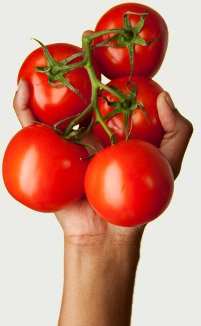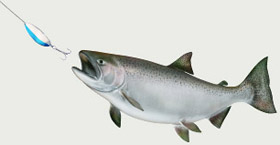Considerations when taking statins (cholesterol lowering) drugs
Posted in Health & Wellness on February 27, 2011. Last modified on August 27, 2018. Read disclaimer.

If you're one of the millions of people taking a statin drug, there's some important information you should know: while statins are effective for lowering LDL "bad" cholesterol, statins are also known to reduce levels of CoEnzyme Q-10 (CoQ-10), a nutrient that helps your body produce ATP, a molecule that fuels your entire body.
What is CoQ-1O?
CoQ-10 is a vitamin-like substance found throughout the body, including the heart, brain, liver and kidneys. Many experts believe that CoQ-10 is the key nutrient for generating most of the total energy required by your body. It can also act as an antioxidant.
Although produced in the body, blood levels of CoQ-10 may begin dropping as early as age 21. Without enough CoQ-10, your body systems won't have the optimal amount of fuel to do their jobs. Once you're over 50, CoQ-10 levels can begin to drop and by the time we're 80 years old, our natural CoQ-10 levels are less than what they were at birth. Smoking is another factor that can lower our natural CoQ-10 levels.
CoQ-10 is found naturally in organ meats, beef, poultry and fish. It's also found in soybean and canola oils and certain nuts. However, CoQ-10 supplements may be the best source of CoQ-10, as food does not provide therapeutic amounts of the nutrient.
According the the National Institutes of Health, Coenzyme Q-10 may be effective, often when used in conjunction with other medications, for decreasing the risk of additional heart problems in people who have recently (within 72 hours) experienced a heart attack, managing high blood pressure, preventing migrain headaches, slowing the progression of early stage Parkinson's disease, supporting the immune function of HIV/AIDS patients, and improving the performance of some people who suffer from muscular dystrophy.
+ Free Shipping & Returns on Eligible Items.
(*Amazon's Top 100 list updated hourly.)
Statins and CoQ-1O
Several studies have confirmed that
many of the statin drugs interfere with
CoQ-10 production, causing blood levels
of CoQ-10 to drop. Those with high cholesterol already have reduced levels of CoQ-10, so statin use can further reduce blood levels of the nutrient.
Who else needs CoQ-1O?
If any of the following apply to you, you may want to consider supplementing with CoQ-10:
- You are over 50 years old
- You want greater stamina
- You have gum problems or sensitive teeth
Remember, if you take statins, talk to your healthcare provider to find out if you're a good candidate for CoQ-10 supplementation. Your continued good health may depend on it!
Are You At-Risk for Heart Attack, Strokes?
Whether or not your on statin therapy, eating a Mediterranean diet may help anyone at-risk for heart disease.
You've probably heard about the Mediterranean diet and how it incorporates eating lots of olive oil, grains, nuts, fruits and vegetables. And you may also have heard about its many health-promoting and disease-preventing benefits. However, did you know that it could be especially helpful for those of us who are at high risk for heart disease?
A 2013 study found that people who are at high-risk of heart attacks and strokes can reduce their risk by an average of 30% simply by switching to a Mediterranean diet! While not quite as powerful as statin therapy (which offers a 44% reduction in these sorts of heart problems), the Mediterranean diet certainly has no harmful side effects. In fact, eating a Mediterranean diet also supports cognitive health, while reducing your risk of some cancers and diabetes.
So, can I stop statins and start eating a healthy diet?
The greatest benefits for those of us who suffer from high cholesterol numbers and are at high risk for heart attacks and stroke comes from combining both of these approaches -- statin therapy AND eating a Mediterranean diet. But check with your doctor -- for some of us, eating a Mediterranean diet is enough to control the risk of heart disease without the need for statin therapy.

From the Research Desk...
Vitamin B-12 shown to be effective relief for canker sores
Beer-Sheva, Israel - Nightly doses of Vitamin B-12 may offer relief for canker sores, researchers from Ben-Gurion University of the Negev reported in the Journal of the American Board of Family Medicine.
In the study, 58 patients with Recurrent Aphthous Stomatitis (RAS, also known as canker sores), were given either 1,000 micrograms of B-12 or a placebo every night for six months. About 74% of those on B-12 were free of canker sores at the end of the study, versus 32% in the placebo group. Treated patients expressed greater comfort, reported less pain, fewer ulcers and shorter outbreaks during the study. The placebo group reported decreased pain in the first half of the study but increased pain during the second half.
Eating more fruits and vegetables could lower heart disease risk
Oxford, United Kingdom - Eating more fruits and vegetables could reduce the risk of death from the most common form of heart disease, researchers at the University of Oxford recently concluded.

Following over 300,000 people from eight European countries, scientists discovered that those who ate eight or more portions of fruits and vegetables (a portion was defined as 80g, or a little under 3 ounces) had a 22% lower risk of dying from ischemic heart disease (IHD) than those who ate fewer than three portions a day. IHD is characterized by a reduced blood supply to the heart. Those suffering from it can experience chest pain and heart attack.
Researchers point out that those who ate eight or more portions of fruits and vegetables were also more likely to engage in other healthy lifestyle habits, which could have also lowered their risk of IHD.

Tips for the Kitchen...
8 brain-healthy foods for your diet
Research shows that certain foods can actually help keep your mind sharp. So, enjoy these brain-healthy foods. They are as beneficial for your brain as they are tasty for your tummy!
Berries
Strawberries and blueberries in particular, are rich in antioxidants which may reduce damaging inflammation, which may contribute to the processing and behavioral shortfalls we normally associate with an aging brain. Berry consumption has also been associated with higher levels of dopamine production.
Salmon
This nutrient-packed fish boasts brain-boosting Omega-3 fatty acids, particularly DHA, which enhances learning and memory. Omega-3 fatty acids can also help fight against mental depression, mood disorders and dementia. Halibut and mackerel also contain high levels of Omega-3s.
Many people believe "wild-caught" salmon generally have lower toxicity levels because of their natural diet. In addition, fish farming has been associated with many environmental concerns.
Green tea
A rich source of potentially cancer-fighting antioxidants and anti-inflammatory properties, green tea may also help stave off the mental decline associated with aging, according to a Japanese study in the American Journal of Clinical Nutrition. Those who drank the most green tea had lower rates of mental decline.
Spinach
Include plenty of spinach in your salad to increase your folate intake (folate is known as folic acid in supplement form). Folate deficiency can lead to neurological disorders such as depression and cognitive (mental) impairment. In supplement form, folic acid has been shown to protect against cognitive decline and dementia.
Apples
An apple a day... Researchers from Cornell University found that these crunchy snacks are chock full of quercetin, an antioxidant-like chemical that may protect the brain from the type of damage that triggers neurodegenerative diseases such as Alzheimer's and Parkinson's.
Eggs
Egg yolks are one of the best sources of choline, a chemical that is a building block of every cell. Studies have shown that increasing choline intake in adulthood can help improve memory. Beef liver is also high in choline, but eggs probably taste better!
Wheat germ oil
Just one tablespoon of wheat germ oil provides 100% of the daily value of Vitamin E; that is, the daily amount recommended by the U.S. Food and Drug Administration (FDA). According to a recent study out of the Netherlands, Vitamin E might help protect against dementia and Alzheimer's disease. In the study, researchers found that those who consumed the most Vitamin E were 25% less likely to develop dementia, compared with those who consumed the least. Vegetable oils, almonds, pecans and walnuts are other dietary sources of Vitamin E.
Curry
Researchers from UCLA found that a compound in curry powder may help the immune system get rid of the brain- clogging proteins that are the hallmark of Alzheimer's disease. The compound was found in turmeric, the spice that gives curry its yellow color.
Breakfast
Don't skip this important meal; it's fuel for the brain! Research shows that eating breakfast may aid attention and short-term memory. Best bets include a combination of whole grains, dairy and fruit.
Antioxidants = Brain Food
Research continues to show antioxidants' protective effects against free radical damage -- and that goes for the brain as well. Take your body's free radical-fighting power up a notch with these antioxidant-rich fruits and vegetables:Fruits: Prunes,
Raisins,
Blueberries,
Blackberries,
Strawberries,
Raspberries
Vegetables: Kale,
Spinach,
Brussels sprouts,
Alfalfa sprouts,
Broccoli florets,
Beets